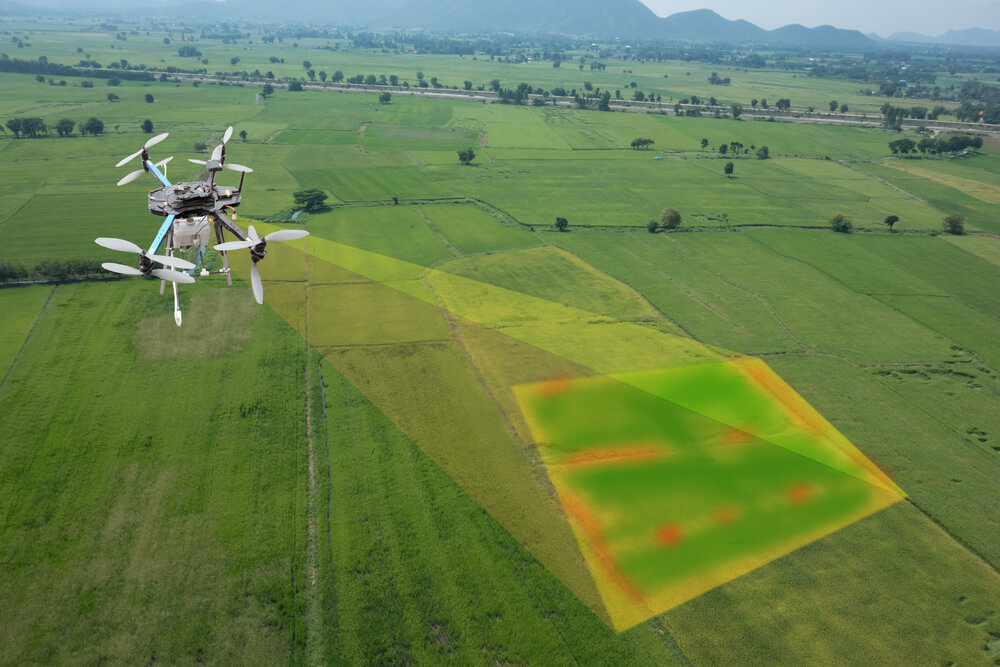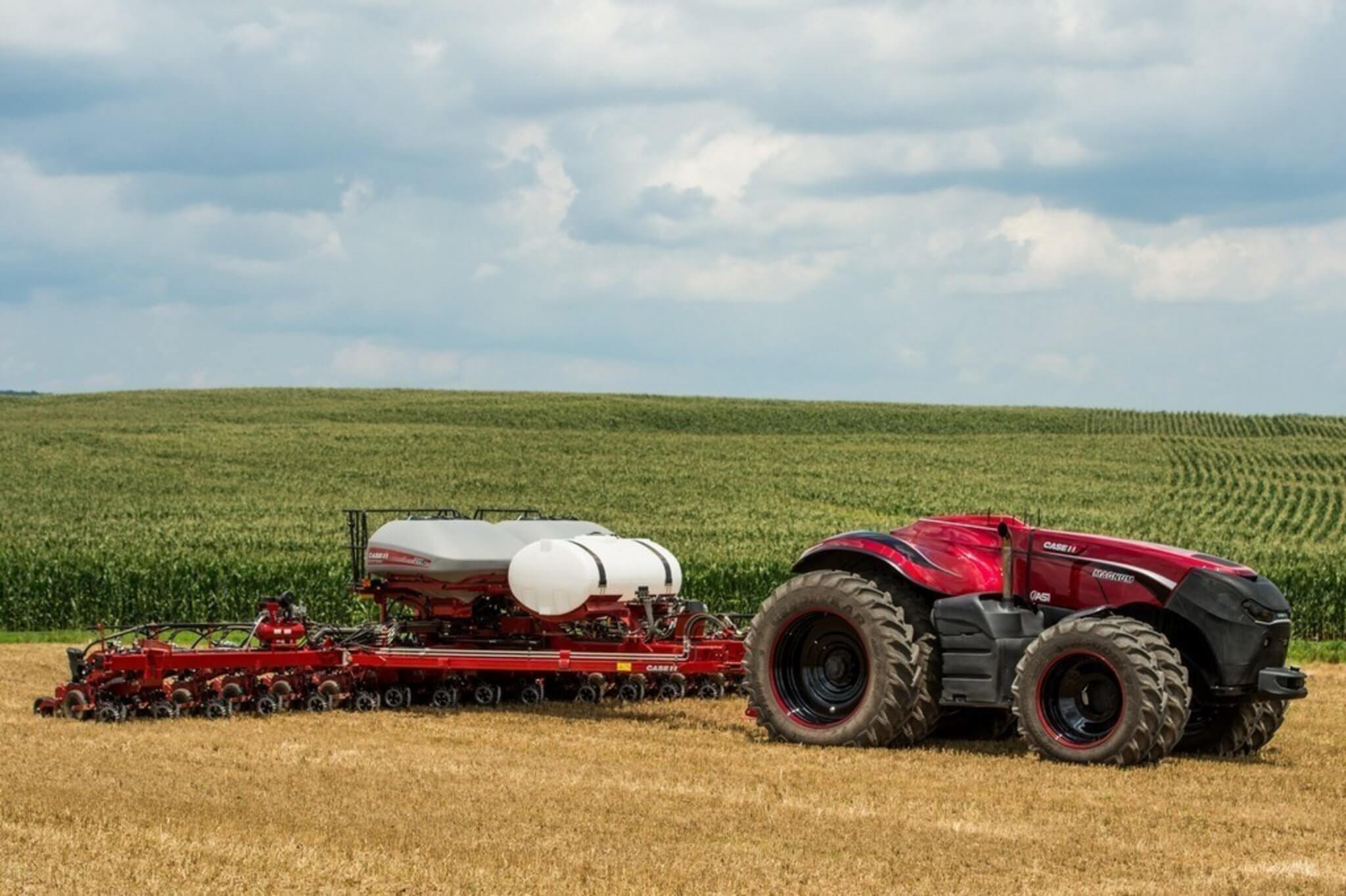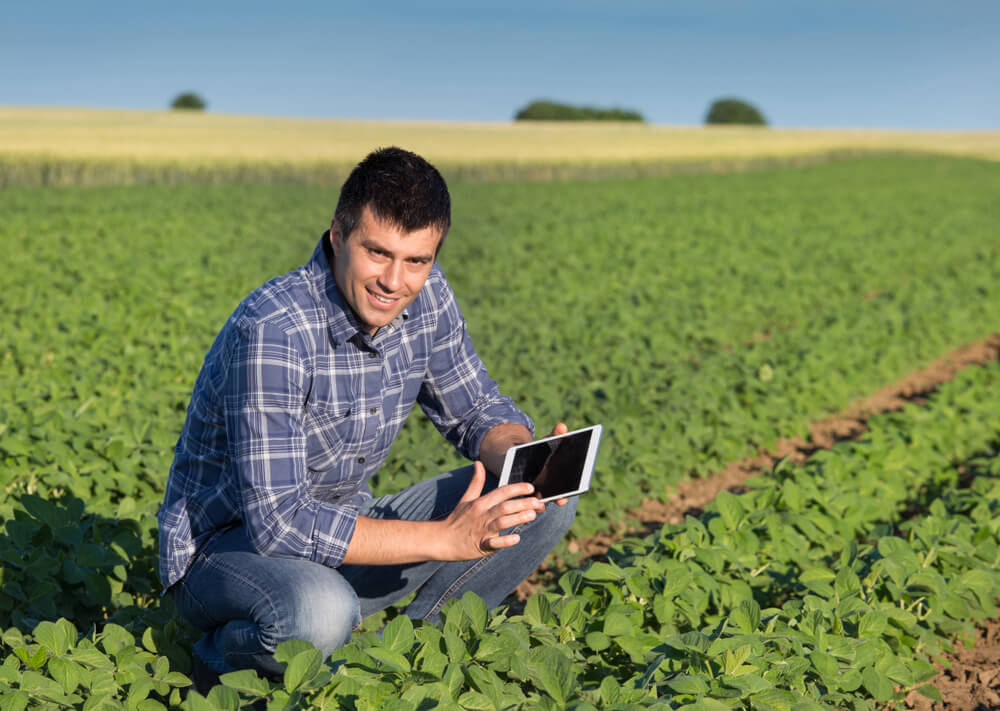
We use cookies and various functionality and analytics tools to provide our site securely and reliably. They help us to optimize the website and improve your personal user experience. You can change your consent at any time in the privacy statement.
Farming may be one of the oldest occupations in the world. But in 2018, the agricultural sector can be called anything but old-fashioned. Shaped by new technologies and the steadily progressing digitization, many people today speak of nothing less than agriculture 4.0. In its concepts, Precision Farming and Smart Farming deals primarily with two central industry challenges: optimization and automation. On one hand, this concerns the qualitative evaluation of acreage and, on the other hand, the autonomous control of the operation through Smart Technology.
The Dutch information scientist Sjaak Wolfert describes today’s agriculture as a cycle of Smart Sensing, Smart Analysis and Smart Control. Sensors are used in harvesting equipment to measure different soil values and connect them with accurate GPS position data to determine yield. Through this so-called Geomapping operations can generate a detailed map of the acreage – including information on soil type, nutrient or moisture content. In addition, drones with infrared and hyperspectral cameras are sometimes used. Based on the different colorations in the recording, it can be determined at which time which field needs to be irrigated or fertilized. This way, for example, early disease-related changes in the plant population, pests or nutrient deficiencies can be detected. An appropriate database allows statistical evaluations as well as the planning of future crops. For example, by calculating the ideal seed and fertilizer quantity. And that can be worthwhile: According to the pwc study “Quo vadis, agricola?” of 2016, just under half of the surveyed farmers stated they were saving on fertilizer with Precision Farming. A quarter even estimated this with savings of 10 to 19 percent.
GPS-assisted steering systems have been part of the agricultural industry for more than a decade. At the beginning of the new millennium an interest to relieve drivers with large working widths was initially aroused among large arable farms. Since then, satellite tracking technology has continued to evolve and became much more affordable. Today 58 Percent of farmers use GPS and 45 Percent use intelligent agricultural machinery. With 5 Percent the number of fully automated businesses is still a bit lower – but here, too, interest is increasing. In Japan, for example, farmers are already one step ahead of Europe. For local rice farmers, pesticide-spraying drones are already part of the basic equipment. The Yamaha electronics group became a pioneer for remote-controlled mini-helicopters in the early 1990s. The manned counterparts – small private helicopters – subsequently lost more and more popularity. In conjunction with technologies such as Geomapping, those multicopters are now an absolute multifunctional tool for growers. From the evaluation of cultivated areas with the help of cameras and sensors to the centimeter-accurate autonomous application of fertilizer and plant protection products. In the future, more and more farmers will combine their databases with robotics and artificial intelligence to optimize the business to the smallest detail.
“Collecting, analyzing and evaluating data will play a much bigger role in the future. If you jump on the train too late, you might lose connection. “- Henning Hecheltjen, systems engineer at Lemken.
In recent years, agriculture has been experiencing an unprecedented boom in digitalization: satellite tracking, remote-controlled agricultural drones, unmanned vehicles, apps, farm management software and analytical information systems. While the automotive industry is still talking about autonomous driving in 2020, the fully digitized harvester already has a firm place in modern cultivation. Precision farming enables more possibilities for more targeted farming. New high-tech methods can reduce the consumption of water, fertilizers and pesticides to what is absolutely necessary and optimize the yield potential with less impact on the environment. Agriculture 4.0 is already a reality in many ways and with the rapid pace of development in places like Silicon Valley, new innovations are not long gone. The farmer of the past is ready to become the Chief Operating Officer of tomorrow.




Share this article